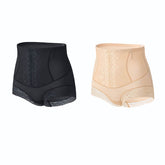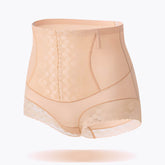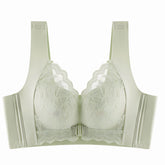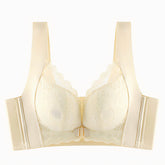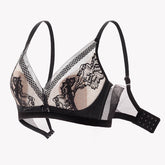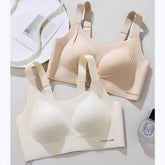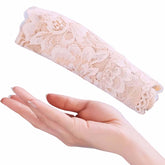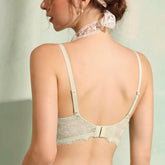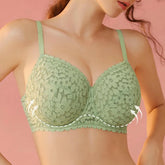My Body, That's Me: About a Body-friendly Education

From an early age, children generally have a very relaxed and affectionate body awareness. However, wrong educational approaches, the environment, friends, but also the media can seriously shake this and unsettle children and adolescents in the long term. Unfortunately, eating disorders in adolescence are no longer isolated cases. The article encourages parents and professionals to think and rethink and supports the development of a healthy body perception with suggestions and tips.
Dissatisfaction with one's own body
Many people today have a disturbed relationship with their own body. They are ashamed of it - because it seems too fat, too thin, too disproportionate or too wrinkled, because it looks bad or smells bad. They fight it with diets and deodorants, with corsets and cosmetics.
More and more girls, and increasingly boys as well, become anorexic or addicted to eating during puberty. Many more - boys as well as girls - are dissatisfied with their outer appearance. They complain about legs that are too thin, bottoms that are too big, breasts that are too small or muscles that are too lacking. They put up with all kinds of health disadvantages in order to change this. They see their body as an enemy to be fought and mortified, or as material to be altered and shaped according to certain standards. They can't feel good in their body as it is because they follow an ideal of beauty propagated by fashion and advertising.
But my body, that is also me
Rounded shapes and sturdy legs are a part of my identity, just like my temperament or my sensitivity. If you really like yourself, you also like your body as it is. They don't lose their self-esteem when they get wrinkles, and they don't panic when they smell like themselves instead of deodorant and cologne.
Feeling good in your own body is one of the prerequisites for a solid self-esteem. If I can't stand a part of myself, if I absolutely want to change it, I can't accept myself as a whole the way I am.
What does an education need to look like that gives children a greater chance to feel truly at home in their bodies?
Feeling oneself
We access our bodies through our senses - by seeing, hearing, smelling, touching, feeling. These senses are functions of the body, with these senses we can also perceive, explore and get to know the body.
In the lives of most adults, the senses are weighted quite differently. We can all see quite well - and if not, we wear a visual aid. We often strain our hearing to the point that it fails to perceive subtle sounds - the singing of raindrops on a lake, the delicate chirping of an insect, the peculiarities of birdsong. Only blind people have to teach us what tactile fingers can perceive. We often cannot correctly interpret sensations on our skin, signals from inside the body. What rolls or throbs, what pulls, presses, or hurts there? What is going on inside?
A child who should feel comfortable in his body needs nourishment for all his senses, he should feel confirmed in paying attention to all his sensory perceptions, also to the feelings they trigger - pleasant and unpleasant, pleasurable and disgusting or painful ones. Then his body will remain less alien to him.
Trusting the body
In parenting, the child's body is often treated quite joylessly. Body care is the first thing that comes to mind for many - washing, brushing teeth, applying lotion, protecting against injuries and diseases - a rather matter-of-fact, sober approach, often against the child's will.
But lovingly looking at, stroking and caressing, does that also have enough room? Do we enjoy the scent of the child's skin, do we trace the delicate curves of his body with gentle fingers? Do we marvel at the dexterity of the hands and feet, but also at the little boy's erection or the big poop the child has made in the potty? Does the child get to know his or her body with all its parts and functions as something admirable, is he or she stimulated to lustfully trace his or her ability to feel?
From a very early age, children have a fine sense of what their body needs now, what is good for it. We can support them in consolidating this ability and acting on it. Instead, we often think we know better than the child what he or she feels and needs. We determine when the child is cold and needs to put something on, when he needs to go to the potty, what and how much he needs to eat to keep his body healthy.
Why don't we ask instead: Are you cold? Do you need to go to the potty? What do you want to eat? We don't trust enough in the child's ability to feel for himself. That's why we hinder them in consciously perceiving and expressing it. Why do we do this? Because we have learned to know it ourselves?
Perhaps, as is often the case, we need to start with ourselves.
How do we actually deal with our body ourselves? Do we prefer to hide it or do we like it the way it is? Do we constantly complain about the life ring around our waist or the cellulite on our thighs? Do we live with pleasure in our body, and do we show it?
It's hard to convey such an attitude if you don't have it for yourself.
In one of my seminars, we were talking about vacation dreams. One man, who by profession has to walk around in a tie and suit every day, said, "I'd like to spend three weeks wandering around with a bike and a tent, wearing the same pair of jeans the whole time and quietly stinking away." Some immediately joined in, eager to ride along. Others couldn't imagine being comfortable without a bathroom in the hotel, without a fresh sweater for each day.
And how do you see it?
If you're unusually picky about cleanliness and personal hygiene - relentlessly chasing every bacteria, always washing your hands, lots of deodorant against any kind of animal odor - it's worth asking yourself some self-critical questions:
Does this have anything to do with my attitude toward sensual pleasure and sexuality?
How was I brought up?
What effect do I have when I pass this attitude on to my child?
Young children do not yet have such problems
Their sensuality is still unbroken, sometimes alienating for "domesticated" adults. Small children are greedy for sensual experiences. Tasting everything, smelling everything, touching everything, rolling around in the flower meadow or stretching comfortably under tender hands - you can see how much pleasure they feel.
Little children try out what their bodies can do. Screaming until your ears ring, spinning until the whole world sways, running and romping until your breath stops, your heart races and your head turns red as a beetroot. In such situations, the child exhausts himself, comes out loudly, feels himself especially intensely, and that, too, is part of the feeling of self.
Maybe this will comfort you when your children are screaming up and down the hall or jumping off the bunk bed again and again. And don't always think of colds when you see red heads and wet, sweaty hair!
Exploring your own body
Children experience their bodies as an exciting field of experience that they test and explore. They also examine all limbs and orifices with curious fingers, poke around in eyes, ears, noses of themselves and others. They do not exclude the genitals from their explorations - why should they?
Small children know no disgust when they also examine their own excretions, taste them, smear themselves with them and spread them over the environment. Hardly any adult will find that acceptable. But too vehemently expressed disgust or even punishment must suggest to the child that a part of him is dirty, bad and undesirable. The same consequences result when any exploration of one's own excretory and sexual organs is tabooed, with "Ugh!" and "You don't do that!"
For a long time, children take a cryptic pleasure in everything that muddies and stinks. Sticking their finger up their butt and cackling lustfully while smelling it - have you never done that? Manhandling with mud or even rolling around in it until you look like a piglet. Do you remember how pleasurable that can be? How comfortable you can feel in your own skin?
A body-friendly upbringing
A body-friendly upbringing accepts children's urge to explore and their sensual desires, even if it gradually steers them carefully in more civilized directions.
Manhandling can be done with materials other than the contents of one's diaper, and nudity is gradually confined to the house and garden or other protected spaces.
Also all kinds of "doctor games" belong better not before the eyes of the public. There may be people who are bothered by this, but there are also others who enjoy it inappropriately. That's how you can explain it to children. It's not what they do that's bad, but what others might make of it.
At home, however, one may explore everything, ask and say everything concerning the body and its functions. All parts of the body have names, sober ones and also tenderly playful ones for home use.
The zone "down there" is neither particularly dirty nor otherwise taboo. You can also use it to give yourself a pleasant, tingly feeling in your stomach. Most children discover that they can do this at an early age. Some, of course, realize that this is something their parents would certainly not like, so they carefully hide it under the covers.
When your child plays with his or her sex with pleasure, it shows that he or she feels comfortable in his or her body and is developing healthily. If it does not hide while doing so, it shows that it has confidence in you.
Many parents will find it difficult to deal so impartially with such expressions of a child's joy of discovery and sensuality because they themselves were brought up differently, because they were scolded or punished for it. But they can try. If they explain to the child, instead of "you don't do that" instead of "you shouldn't do that", "I'm uncomfortable with that because I was punished for it as a child. you have already gained a lot.
My body belongs to me
When children are confirmed in paying attention to their own sensations and acting on them, they will also indicate without bias which touches by others are pleasant to them and which are not. And they should know: I am allowed to do anything with my body, others are not allowed to do it without my permission. Aunt Mine is not allowed to just grab me and kiss me, and I don't have to shake anyone's hand if I don't like it.
This will seem rude to some. But a child who is used to being allowed to refuse such requests will also defend himself more easily and confidently if someone tries to get into his pants without permission.
Adults who necessarily want to "get into the child's pants" - the doctor, for example, or the governess - should announce this to the child and give clear reasons: "I have to examine your stomach now" or "Come on, I want to change your diaper.
At the doctor's office, some things have to take place against the child's will, but this is always explicitly legitimized by the father or mother and hopefully also explained to the child. But what does a nursery school teacher do, for example, when a child refuses a diaper change?
After all, this situation is worth some critical thinking. Not everyone will come to the same conclusion.
Some children, who, as long as they were little, jumped around the apartment naked without any inhibitions, eventually start locking the bathroom door, not wanting to let anyone touch them. This is their right, even if the parents, who themselves may not be shy about being naked, do not understand the reason. Respect for a child's personality includes respect for his or her bodily autonomy.
Source
Helga Gürtler (2000): How my child becomes self-confident, Midena Verlag, Munich
Literature
Marcella Barth, Ursula Markus (1991): Zärtliche Eltern, gelebtte Sexualerziehung durch Zärtlichkeit, Sinnesnahrung, Körpergefühl, Bewegung, verlag pro juventute, Zurich.


